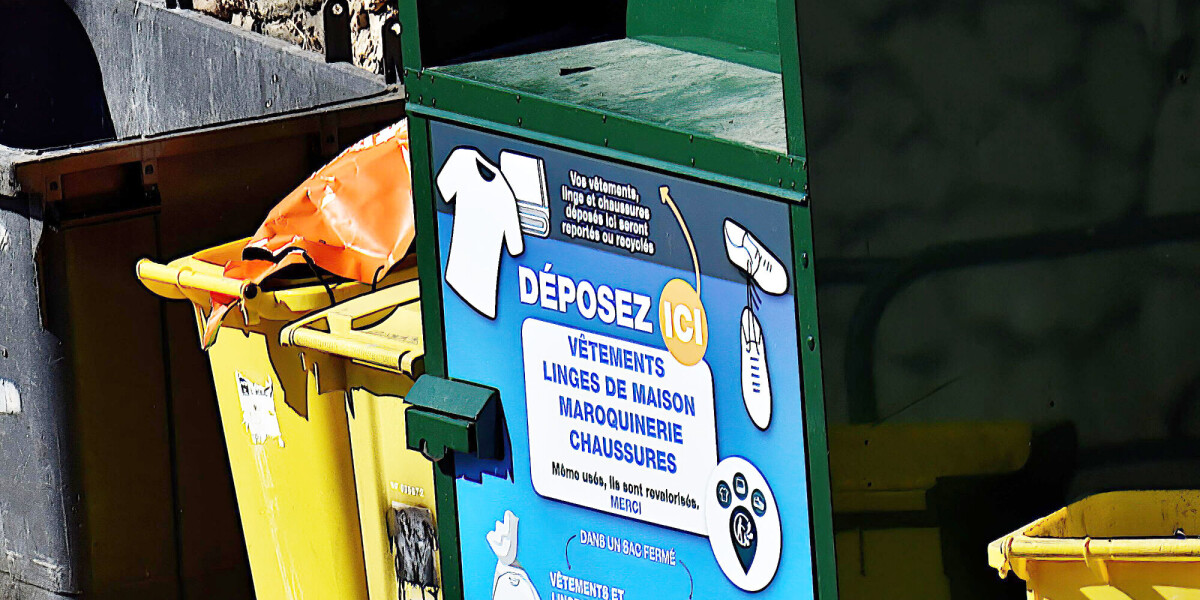Fast fasion clothes are causing blockages although the problem is multi-faceted
It is getting harder to find recycling bins for clothes and shoes with the volume of discarded ‘fast fashion’ causing blockages at recycling centres.
The crisis for the textile recycling sector has been exacerbated because the traditional outlet of selling unwanted clothes to Africa has suffered from a price crash.
Sandra Baldini of Refashion, which manages waste from textile and footwear firms, told The Connexion: “It happened really quickly in 2024, and lots of associations, many of which provide work for disabled people or those getting back to work, are in real difficulty.
“Previously, the textile recycling sector was essentially a social one. We now have to change this mentality and put measures in place so it becomes an environmental one instead. We are calling for a national plan of action to do this.”
Read more: Old clothes turned into home insulation and sold in French DIY shops
Adding to the problem is the implementation of compulsory clothes sorting in recycling bins in Europe from January.
In France, clothes and shoe recycling has been widespread since 2009, when the government tasked Refashion with managing the system and providing a link between manufacturers, customers and recyclers.
There were around 47,000 collection points, usually in supermarket car parks. No figures show how many have been taken away, but anecdotal evidence is that they are no longer found in many small towns.
“We just do not know, but with the backlog of unsellable clothes building up, organisations running these bins will have to find some solutions,” said Ms Baldini.
Fast-fashion websites such as Shein have become popular in France as they offer very cheap clothes. However, they are often badly stitched and made from poor-quality plastic fibres, making them hard to recycle.
Read more: How I became a hat designer after retiring to France
The problem not just fast fashion
However, Ms Baldini said the problems facing the textile recycling sector run deeper.
“Pointing the finger at fast fashion and ignoring the underlying problem will not solve anything. The textile recycling sector has been built on one financial model – selling clothes to Africa – and that has collapsed.”
Other uses for textiles are being developed, but slowly. Cotton and wool are used to make home-insulation material, for example, but this is still significantly more expensive than glass fibre or rockwool.
Ms Baldini said there have been trials to recycle cotton and wool by breaking down and respinning their fibres, but very few facilities exist in Europe, and none in France.
Meanwhile, French firm Carbios has perfected a method for recycling polyester fibres using enzymes, but it will be available on an industrial scale in 2027 at the earliest.
Maud Hardy, CEO of Refashion, published a manifesto in November calling for concerted action by the EU to boost the industry.
She proposed extending recycling obligations, currently imposed only on large firms, to all in the textile industry.
Read more: SEE: Old French skis turned into colourful tables and benches
She also wants a dedicated European budget for the sector, to reduce VAT on recycled goods and materials, to study alternatives to exporting unwanted clothes to Africa, and to better educate people about the materials used to make clothes
Find good-quality secondhand clothes
Bourses aux vêtements, held in many large towns twice a year, can be a good source of high-quality, secondhand clothes.
They are usually more structured than rummage sales, and it is possible to find bargains and designer items. Most of the clothes come from bourse aux vêtements association members outside the recycling bin circuit.
Events are usually advertised locally, with some departments printing leaflets that list them all. Bourse-aux-vetements.org has listings too, but is not always reliable.
Many people also sell used clothes on online marketplaces such as Leboncoin and Vinted. Other specialist clothing sites worth searching include Vestiaire Collective, Once Again and Jaiio.

